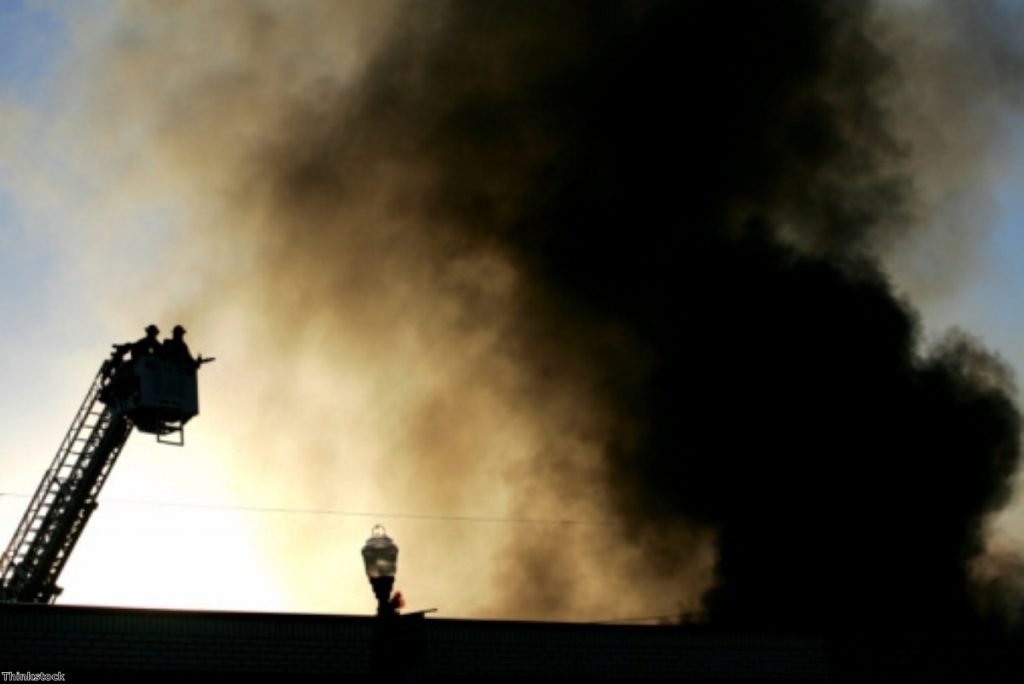Abstention tensions: Ministers told to steer clear of referendum vote
Conservative backbenchers are preparing to defy their leader over the EU referendum in another sign of David Cameron's weakness on Europe.
It sets up the extraordinary prospect of around 100 Conservative MPs voting against their own government's Queen's Speech this week.
Downing Street is already attempting to reduce the tensions of such a potential vote on Wednesday by allowing backbenchers a free vote and requesting ministers to abstain.
That diminishes the 'rebellion' aspect of the story but does not extinguish it. Tory whips will still view those MPs who vote against the Queen's Speech as having demonstrated disloyalty.


"I'm afraid abstaining does show the weakness of the prime minister," one minister told the Sunday Telegraph newspaper.
"He can't force ministers to vote against this amendment because some of us would walk out."
Ministerial aides in the Commons, whose membership of the 'payroll' vote becomes unclear whenever the whips sense a potential defeat, will be allowed to vote against the amendment.
Ed Miliband used a speech to the Progress conference yesterday to claim Cameron was being "pushed around by his backbenchers".
"The only reason he changed his mind in January on an in/out referendum… wasn't about the national interest, it was simply about his party interest," he said.
"And it hasn't even worked. Because those backbenchers will keep coming back for more."
Speaker John Bercow will have to accept the amendment for the vote to go ahead at the end of a week of debates on the Queen's Speech on Wednesday.
It was tabled by John Baron, who has led pressure on the prime minister to legislate for a referendum to take place in the next parliament.
Cameron promised in his Bloomberg speech in Europe to hold an in-out referendum on Britain's future in the EU during the next parliament if the Conservatives win the next general election.
Many Tories feel the party has lost out to voters because of eroded levels of public trust in former promises on European referenda. Baron's amendment states: "This House respectfully regrets that an EU referendum Bill is not included in the Gracious speech."
Tory veteran John Redwood pointed out in a blog post that the motion's lack of detail was an attempt by Baron to "maximise support", because it allows both MPs who want a referendum in 2017 and one immediately to vote for it.
Labour is likely to vote against the amendment, meaning the chances of the government actually being defeated is negligible. But the division will be a key opportunity for eurosceptic Tories to reveal the extent of their feeling on the issue.
"You have government ministers potentially voting against their own Queen's Speech," shadow home secretary Yvette Cooper told BBC1's The Andrew Marr Show.
"We need cool calm heads and statesmanlike behaviour at a time like this, and I don't think that is what David Cameron is showing."
Education secretary Michael Gove said last autumn he would leave the European Union immediately, but said he would abstain from any vote this week.
Claiming that most Conservative MPs believe in a referendum, he rejected Sunday newspaper headlines about 'Tories in turmoil' by arguing on the same programme: "You can't have a civil war when everyone's on the same side."
He said it was "fair enough" that some "colleagues" were "letting off steam" and being "a bit exuberant", but said he believed the right thing to do is support the prime minister.
"I'm going to abstain because I believe while we absolutely need to have a referendum at some point in the future it's not appropriate at this stage. Also, it's an exercise in letting off steam," he said.
"We can't have a referendum bill because we're in coalition. One of the things that is often under-remarked is coalition politics changes the way that things are seen. So you can have disagreements but you mustn't turn them into dramas."

